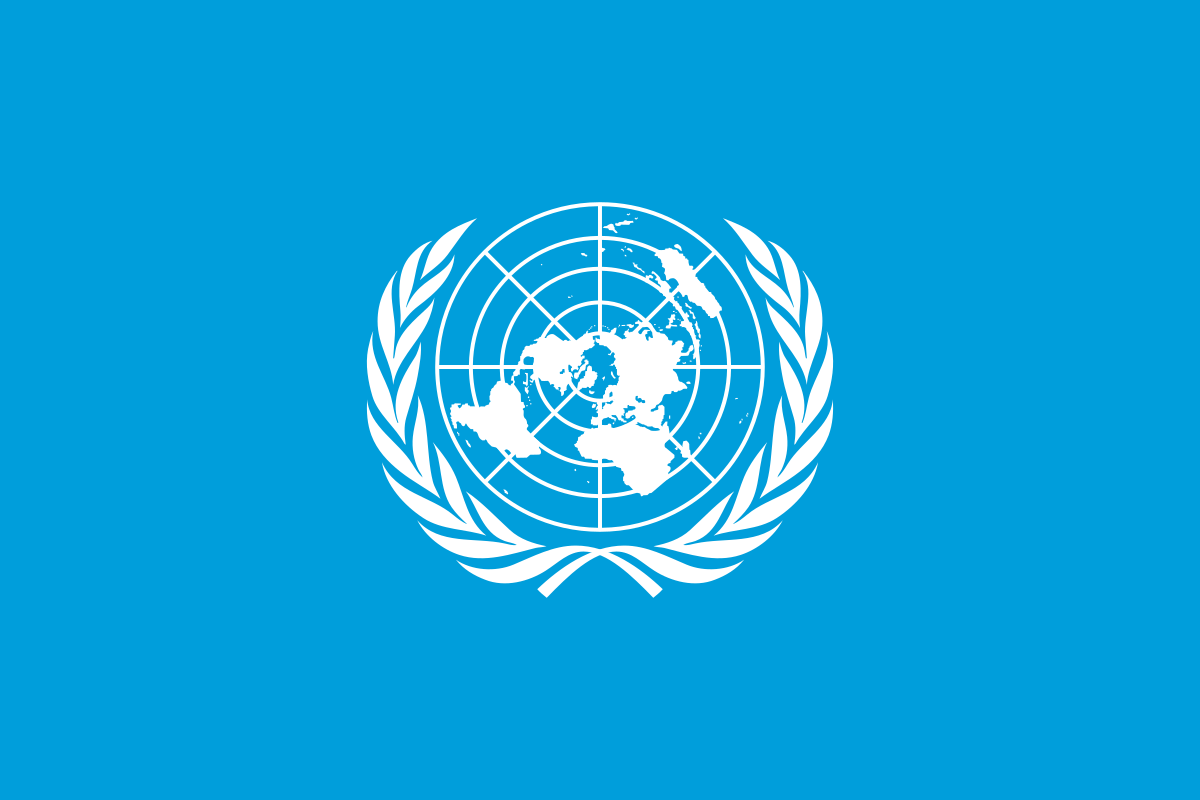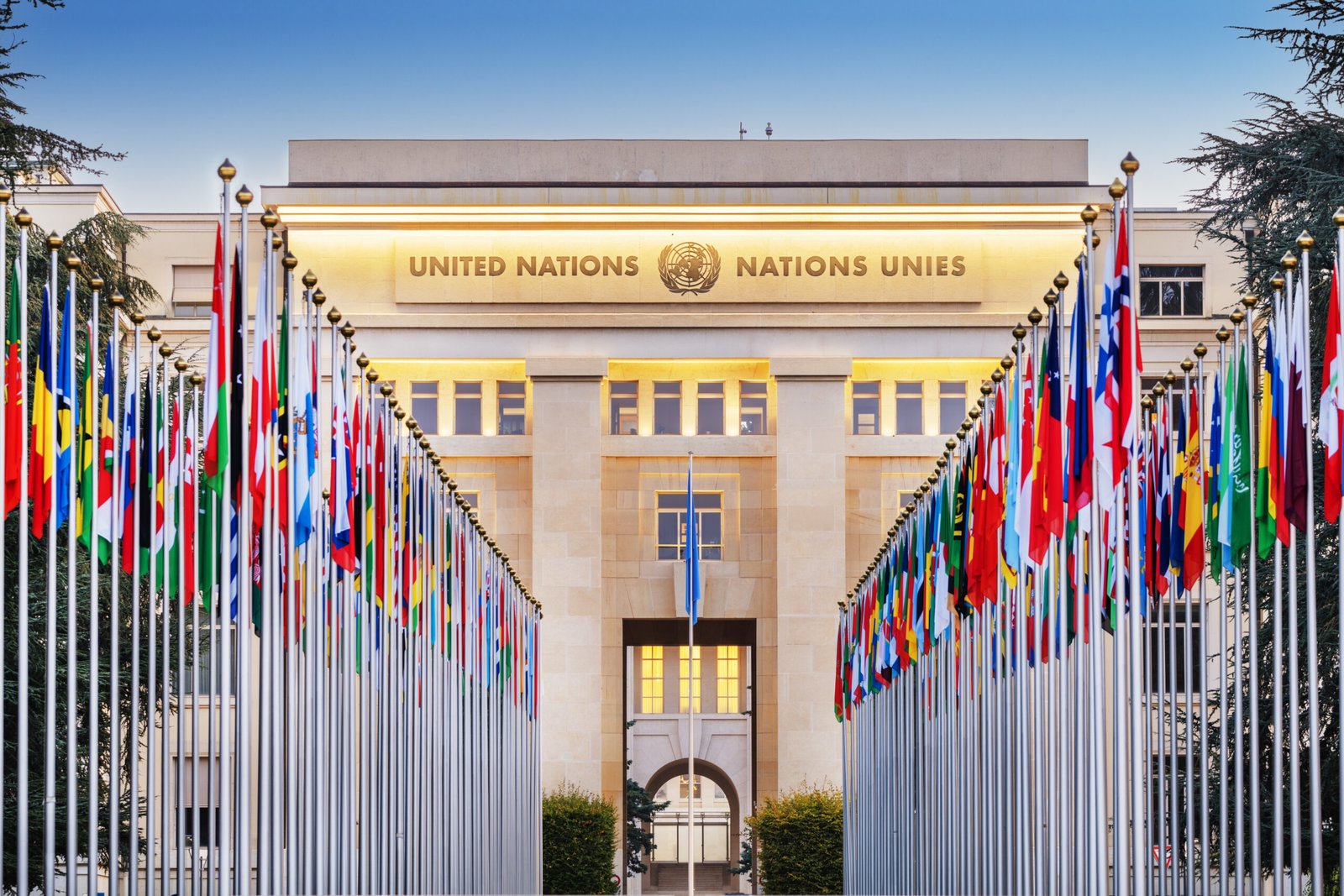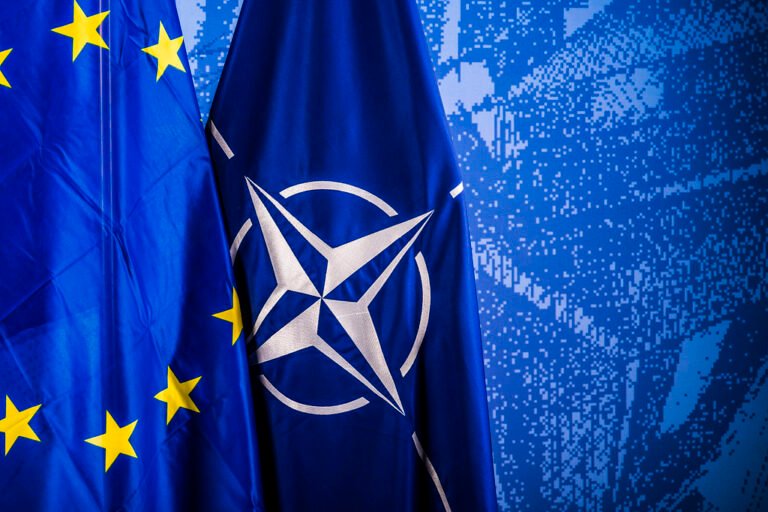The United Nations, often abbreviated as the UN, plays a crucial role in global peace and cooperation. Established in 1945, it aims to foster international unity.
The UN addresses various global issues, ranging from human rights to environmental protection. It consists of 193 member countries, making it a vital platform for dialogue and negotiation. The organization works through different bodies, such as the General Assembly and the Security Council.
Each body has specific responsibilities and powers. The UN also runs numerous programs and agencies to support development and humanitarian efforts worldwide. Understanding its structure and functions helps us appreciate its impact. Let’s explore the significance of the United Nations in today’s world.

Credit: migrationnetwork.un.org
Origins And History
The United Nations (UN) is an international organization. It was founded in 1945. Its purpose is to promote peace and cooperation among countries. The UN emerged after the devastation of World War II. Leaders wanted to prevent such conflicts from happening again.
Founding Members
In 1945, 50 countries came together in San Francisco. They signed the UN Charter. This document laid the foundation for the UN. Here is a table of some founding members:
| Country | Region |
|---|---|
| United States | North America |
| United Kingdom | Europe |
| China | Asia |
| Soviet Union | Europe/Asia |
| France | Europe |
Key Milestones
The UN has achieved many important milestones. Here are a few key moments:
- 1948: Adoption of the Universal Declaration of Human Rights.
- 1960: Declaration on the Granting of Independence to Colonial Countries and Peoples.
- 1987: Launch of the Montreal Protocol to protect the ozone layer.
- 2000: Introduction of the Millennium Development Goals.
- 2015: Adoption of the Sustainable Development Goals.
The UN continues to work towards global peace and development. It plays a crucial role in addressing international issues. From human rights to environmental protection, the UN’s work is vital.
Core Principles
The United Nations (UN) is an international organization. It was founded in 1945. The UN aims to promote peace, security, and cooperation among countries. The core principles of the UN guide its actions and decisions. These principles include peacekeeping, human rights, and more.
Peacekeeping
Peacekeeping is one of the UN’s primary roles. The UN deploys peacekeeping missions to conflict zones. These missions help maintain peace and security. Peacekeepers monitor ceasefires and support political processes.
Here are some key aspects of UN peacekeeping:
- Neutrality: Peacekeepers remain neutral in conflicts.
- Consent: Peacekeeping missions require the consent of the host country.
- Non-use of force: Force is only used in self-defense or defense of the mandate.
Peacekeeping helps create conditions for lasting peace. It supports the transition from conflict to stability.
Human Rights
The UN is committed to promoting and protecting human rights. The UN Charter and the Universal Declaration of Human Rights are key documents. They outline the rights and freedoms all people should enjoy.
The UN’s work in human rights includes:
- Monitoring: Observing and reporting human rights violations.
- Advocacy: Raising awareness and encouraging respect for human rights.
- Support: Providing assistance to victims of human rights abuses.
Human rights are at the heart of the UN’s mission. The organization works to ensure dignity and equality for all.
Main Organs
The United Nations (UN) is an international organization. It was founded in 1945. The UN works to maintain peace and security. It also fosters cooperation between countries. The UN has six main organs. Each plays a unique role. This post will focus on the General Assembly and the Security Council.
General Assembly
The General Assembly is the main deliberative body. All 193 member states are represented. Each has one vote. It addresses key issues. These include peace, security, and development. The General Assembly meets once a year. Special sessions can also be called. Decisions are made by a two-thirds majority. Important topics need this majority. These include peace, security, and budget matters. Other issues need a simple majority. The General Assembly sets policies. It also appoints the Secretary-General. This body plays a vital role in the UN.
Security Council
The Security Council is responsible for peace and security. It has 15 members. Five are permanent. These are China, France, Russia, the UK, and the US. The other ten are elected for two-year terms. The Security Council can impose sanctions. It can authorize the use of force. It can also establish peacekeeping missions. Decisions need at least nine votes. No permanent member can veto. The Security Council is crucial for maintaining global peace. It meets whenever there is a threat to peace.
Peacekeeping Missions
The United Nations (UN) plays a crucial role in maintaining global peace. One of its key functions is conducting peacekeeping missions. These missions help stabilize regions affected by conflict. They promote peace and security worldwide. Peacekeeping forces consist of soldiers, police, and civilian personnel. They come from different countries and work together for a common goal. They protect civilians, monitor ceasefires, and support the political process. The UN has conducted numerous peacekeeping operations since its inception. Below, we explore some notable operations and success stories.
Notable Operations
The UN has launched many significant peacekeeping missions. One of the most notable is the mission in Rwanda. This operation aimed to stop the genocide in 1994. Another significant mission was in Kosovo. UN forces helped maintain order after the conflict in the late 1990s. The mission in Sierra Leone also stands out. UN peacekeepers helped end a brutal civil war. The mission in Lebanon is another example. It has been ongoing since 1978 to maintain peace in the region. These missions highlight the UN’s commitment to global peace.
Success Stories
The UN has many peacekeeping success stories. One example is Namibia. UN forces supervised the transition to independence in 1990. This mission was peaceful and successful. Another success is in East Timor. UN peacekeepers helped the country gain independence in 2002. The mission in Liberia is also notable. UN forces helped end the civil war and supported elections. Cambodia is another success story. The UN helped restore peace and held democratic elections in the early 1990s. These examples show the positive impact of UN peacekeeping missions.
Humanitarian Efforts
The United Nations (UN) plays a crucial role in providing humanitarian assistance worldwide. Their efforts help millions of people affected by natural disasters, conflicts, and other crises. This section will explore two key areas of the UN’s humanitarian work: disaster relief and refugee support.
Disaster Relief
Natural disasters can strike at any time, causing widespread destruction and suffering. The UN mobilizes quickly to provide emergency relief in these situations. They supply food, water, and medical care to affected populations. Their teams coordinate with local authorities to ensure aid reaches those in need promptly.
In addition to immediate relief, the UN works on long-term recovery efforts. They help rebuild communities and restore infrastructure. This includes rebuilding homes, schools, and hospitals. The goal is to help people return to normal life as soon as possible.
Refugee Support
Conflicts and persecution force millions to flee their homes. The UN provides essential support to these refugees. They offer shelter, food, and healthcare in refugee camps. These camps are often the first safe haven for displaced families.
The UN also focuses on education and livelihood programs for refugees. They set up schools in camps to ensure children continue their education. They provide vocational training to adults, helping them gain skills for employment.
Here is a quick overview of the UN’s refugee support services:
| Service | Description |
|---|---|
| Shelter | Tents and temporary housing |
| Food | Daily meals and nutrition programs |
| Healthcare | Medical care and vaccinations |
| Education | Schools and learning materials |
| Vocational Training | Skills development and job training |
The UN’s humanitarian efforts save lives and help rebuild futures. Their work brings hope to those in desperate situations and ensures that no one is left behind.

Credit: en.wikipedia.org
Challenges Faced
The United Nations (UN) faces many challenges in today’s world. These challenges affect its ability to maintain global peace and security. The following sections outline some of the most pressing issues.
Political Conflicts
Political conflicts often hinder the UN’s peacekeeping missions. Countries with opposing interests make it hard to reach agreements. This creates deadlocks in decision-making processes. The UN struggles to mediate these complex disputes. Each conflict requires a unique approach, making resolution difficult.
Funding Issues
Funding issues pose a significant challenge for the UN. Many member states fail to pay their dues on time. This leads to budget shortfalls, affecting operations. Essential programs may face cuts or delays. Insufficient funds limit the UN’s ability to respond to crises. Reliable funding is crucial for the UN to fulfill its mission effectively.
Global Partnerships
The United Nations (UN) plays a crucial role in fostering global partnerships. These partnerships are essential for addressing complex global challenges. They bring together different stakeholders to work towards common goals. The UN collaborates with governments, private sectors, and civil society. This collaboration aims to achieve sustainable development and peace.
Collaborations
The UN’s collaborations are diverse and wide-ranging. They involve various member states and organizations. Here are some key areas:
- Peacekeeping missions in conflict zones
- Humanitarian aid during natural disasters
- Health initiatives such as combating pandemics
- Educational programs for underprivileged communities
These collaborations ensure that resources are used effectively. They help in reaching the most vulnerable populations. Effective partnerships lead to impactful outcomes.
Non-governmental Organizations
Non-Governmental Organizations (NGOs) are vital partners of the UN. They bring unique expertise and grassroots connections. NGOs help in implementing various UN programs. They play a key role in:
- Advocating for human rights
- Providing humanitarian assistance
- Promoting sustainable development
- Raising awareness on global issues
NGOs operate in areas where the UN has limited reach. They ensure that local communities are involved in the decision-making process. This leads to more effective and sustainable outcomes.
| Type of Partnership | Example |
|---|---|
| Government Collaboration | Peacekeeping Missions |
| Private Sector | Health Initiatives |
| NGOs | Humanitarian Aid |
Global partnerships are the backbone of the UN’s mission. They ensure that the world works together towards a better future.
Future Prospects
The United Nations (UN) continues to play a crucial role in maintaining global peace and security. With a rapidly changing world, the future prospects for the UN include significant reforms and the need to address new challenges. This section explores these aspects in detail.
Reform Proposals
Various reform proposals are being considered to improve the UN’s effectiveness. These include:
- Revising the Security Council membership
- Enhancing transparency and accountability
- Streamlining decision-making processes
Changes in the Security Council aim to better represent the current global landscape. Adding more permanent and non-permanent members is a popular suggestion. Enhancing transparency involves sharing information more openly with member states and the public. This can build trust and support. Streamlining decision-making processes will help the UN respond faster to crises and conflicts.
Emerging Challenges
The world faces emerging challenges that the UN must address. These include:
- Climate change
- Cybersecurity threats
- Global health crises
Climate change remains a pressing issue. The UN must promote international cooperation to reduce emissions and adapt to new environmental realities. Cybersecurity threats are also on the rise. Protecting data and critical infrastructure is essential. Global health crises, such as pandemics, need coordinated responses. The UN can play a key role in ensuring that countries work together to combat these threats.
By addressing these challenges and implementing reforms, the UN can continue to be a vital force for peace and stability in the world.
FAQs
What Is The United Nations?
The United Nations is an international organization founded in 1945. It aims to promote peace, security, and cooperation among countries.
How Many Countries Are In The United Nations?
The United Nations has 193 member countries. It includes almost all recognized nations in the world.
What Is The Purpose Of The United Nations?
The purpose of the United Nations is to maintain international peace and security. It also promotes social progress and better living standards.
Who Founded The United Nations?
The United Nations was founded by 51 countries in 1945. It was created after World War II to prevent future conflicts.
Conclusion
The United Nations plays a crucial role in global peace. It addresses pressing issues. It promotes human rights and equality. It facilitates international cooperation. Its efforts impact millions worldwide. Continual support and participation are essential. Together, we can work towards a better future.
The UN remains vital for progress and unity. Engage with their mission. Advocate for global collaboration. Let us strive for a peaceful world.








